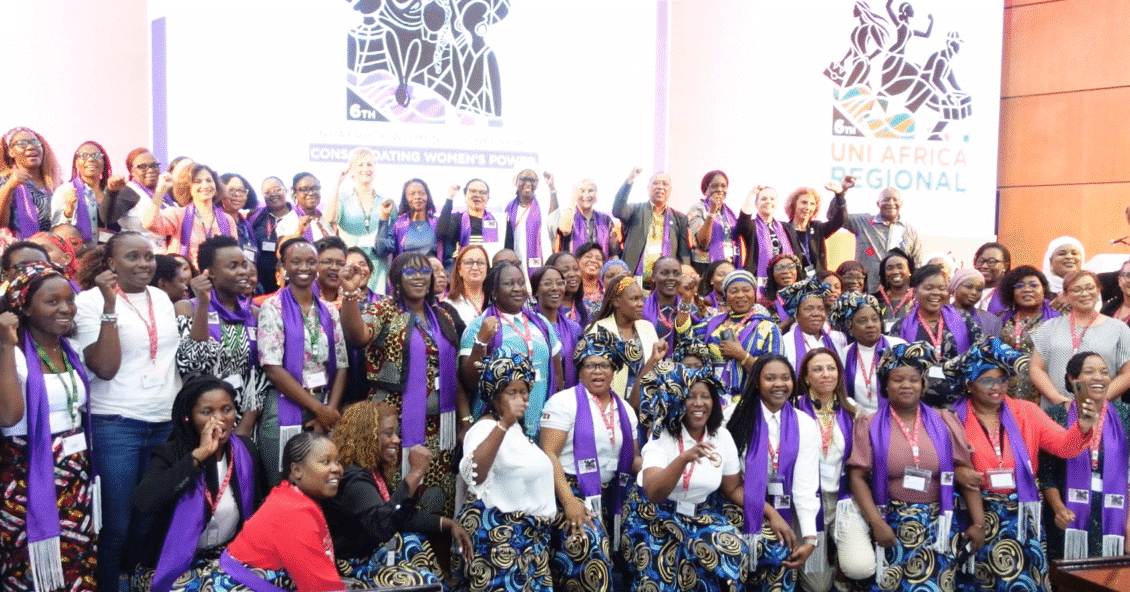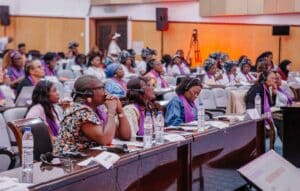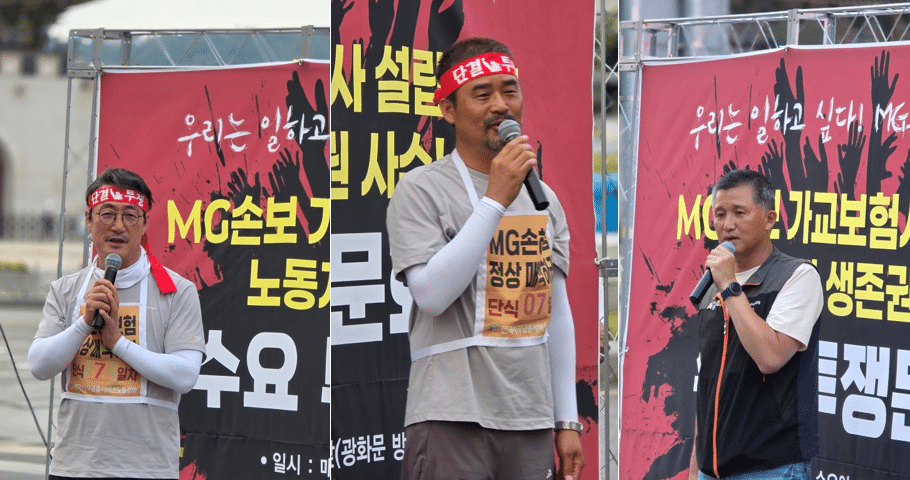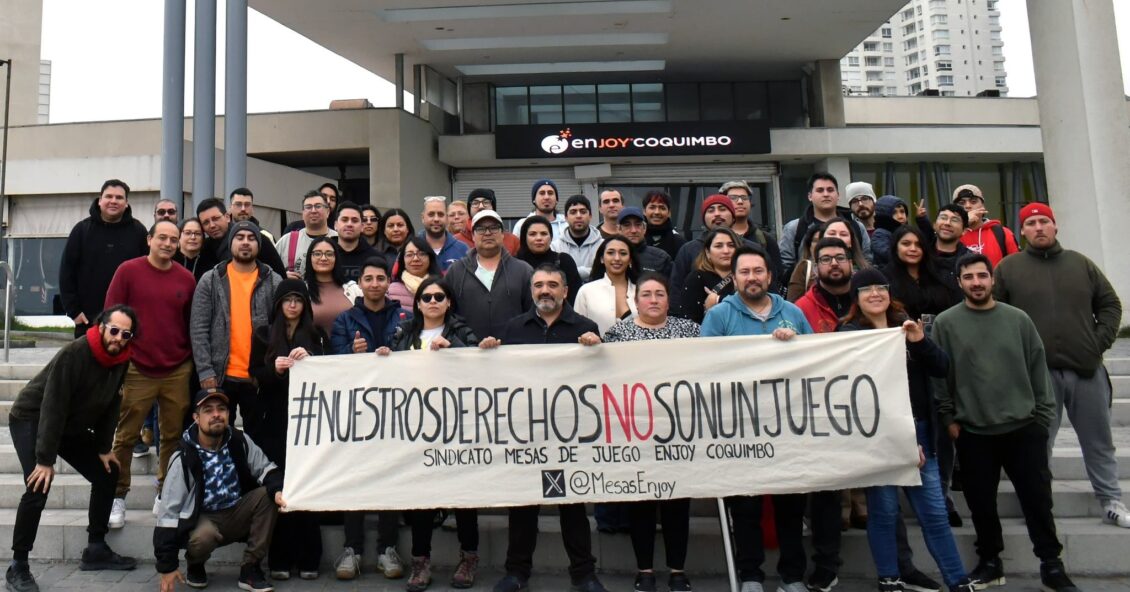6th UNI Africa Women’s Conference unites to consolidate power and demand change
25.06.25
With the rallying call of “Consolidating Women’s Power,” more than 80 women trade union leaders from 34 unions across 15 countries gathered in Maputo for the 6th UNI Africa Women’s Conference on 23–24 June. The two-day event culminated in the election of new leadership and the adoption of resolutions committed to strengthening women’s rights across the services sector in Africa.
Opening the conference, Sister Oyinkan Olasanoye, Acting President of UNI Africa, said: “We come together to celebrate our strengths, to support one another and to empower each other to be the change-makers we were born to be.”
Veronica Fernandez Mendez, Director of UNI Equal Opportunities, who joined the conference remotely, emphasized, “Women are at the forefront of struggles for decent work, mental health, and the elimination of violence and harassment. Their feminist, supportive and intergenerational vision is reshaping African trade unionism.”
However, there is still a long way to go to achieve gender equality, acknowledged UNI Global Union General Secretary, Christy Hoffman. “The pay gap between women and men has narrowed only a very small amount over the past ten years. If we take South Africa as an example, should current rates of progress towards closing the gender pay gap continue, we will only reach equal pay in 2093 and we do not accept that.”
Developing women’s leadership
The conference heard how UNI’s 40 for 40 campaign is seeing positive growth in women’s representation in UNI structures and activities, while UNI’s Mentoring Program is lifting hundreds of women into leadership roles in their unions. UNI Africa Vice-President Rose-Marie Baloucoune from SNPT, Senegal, asserted:
“Leadership is not simply about holding a position. To lead is to take on the responsibility of opening paths, inspiring others and making difficult decisions with courage and a collective vision. It is about supporting our fellow sisters, walking alongside them and fighting to ensure no one is left behind.”
Helen Usen from Nigeria’s RATTAWU spoke powerfully of her transformation to be a leader: “I used to be fearful, now I am bold, and it’s all thanks to the Mentoring Program.” Despite being discouraged by those around her, she successfully ran for Vice-Chairperson in her union and now plans to mentor others.
Fighting against violence
Ratifying ILO Convention 190 and Resolution 206 on the elimination of violence and harassment remains a key goal for affiliates. But ratification is only the beginning, reminded UNI Africa’s Director for Women’s Activities, Leocadie Bodjouo. “The real challenge is enforcing it,” she said.
Mbali Blose from SACCAWU, South Africa, recounted the tragic murder of a female shop worker and underscored the role of unions in demanding safer workplaces. “Through our collective bargaining, we are saying: let our members make safety a workplace right.”
Agnes Mwangagi of COWU, Kenya, also explained: “We are encouraging women not to be embarrassed. We need to speak out against sexual harassment at work.”
Including parental rights into collective bargaining
The conference heard powerful testimonies from women on the difficulties of balancing motherhood and work, reinforcing the need to embed maternity and paternity rights into collective bargaining. “We must change the mindset of employers,” said Rita Kwabla from CWU, Ghana.
Women’s testimony focused on the importance of longer maternity leave, better support for breastfeeding mothers and increased paternity leave so men are encouraged to take on a caring role.
Taking care of women’s health
From menstruation and menopause to mental health and breast cancer, women’s health took centre stage. Rasakat Oyewole from ASSBIFI, Nigeria, shared the work her union is carrying out around mental health, while Samassi Marietou from SYNAPOSTE, Ivory Coast, explained how her union is implementing UNI Equal Opportunities’ Three Ms campaign to support women through menstruation, maternity and menopause.
A delegate from eSwatini reminded participants, “Women double production. Not only do they produce in the workplace, they produce the workforce.” The message was clear: women’s health is a union issue.
New Leadership, renewed commitments
UNI Deputy General Secretary Alke Boessiger paid tribute to the outstanding legacy of departing UNI Africa Women’s President, Patricia Nyman, saluting her as “an incomparable activist, a tireless negotiator, a committed feminist and a fighter for the rights of all women.”
Pauline Sawadogo from SYNATEL, Burkina Faso, was unanimously elected as the new UNI Africa Women’s President. “I am convinced we can reach new summits if we work in solidarity as women. We must work together to make the voice of women heard, to consolidate our power,” she declared.
UNI Africa Women passed a resolution which reaffirmed their commitment to gender equality by pledging to mainstream a gender perspective across workplaces, unions and communities; support women’s health through targeted campaigns; uphold the 40 per cent gender representation rule; push for the ratification and implementation of ILO Convention 190 and Recommendation 206; and expand their successful Mentoring Program to help more women, especially young women, step into leadership roles.



